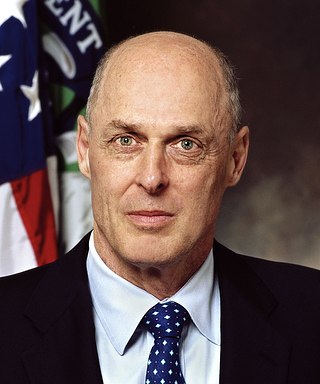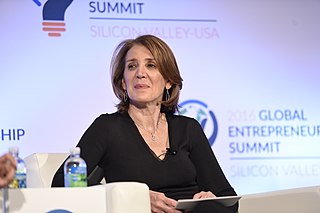Related Research Articles

The legality of cannabis for medical and recreational use varies by country, in terms of its possession, distribution, and cultivation, and how it can be consumed and what medical conditions it can be used for. These policies in most countries are regulated by three United Nations treaties: the 1961 Single Convention on Narcotic Drugs, the 1971 Convention on Psychotropic Substances, and the 1988 Convention Against Illicit Traffic in Narcotic Drugs and Psychotropic Substances. Cannabis was reclassified in 2020 to a Schedule I-only drug under the Single Convention treaty, with the schedules from strictest to least being IV, I, II, and III. As a Schedule I drug under the treaty, countries can allow the medical use of cannabis but it is considered to be an addictive drug with a serious risk of abuse.

Punjab National Bank is an Indian government bank based in New Delhi. It was founded in May 1894 and is the second-largest public sector bank in India in terms of its business volumes, with over 180 million customers, 12,248 branches, and 13,000+ ATMs.
John Wiley & Sons, Inc., commonly known as Wiley, is an American multinational publishing company that focuses on academic publishing and instructional materials. The company was founded in 1807 and produces books, journals, and encyclopedias, in print and electronically, as well as online products and services, training materials, and educational materials for undergraduate, graduate, and continuing education students.

Cannabis, commonly known as marijuana, weed, and pot, among other names, is a non-chemically uniform drug from the cannabis plant. Native to Central or South Asia, the cannabis plant has been used as a drug for both recreational and entheogenic purposes and in various traditional medicines for centuries. Tetrahydrocannabinol (THC) is the main psychoactive component of cannabis, which is one of the 483 known compounds in the plant, including at least 65 other cannabinoids, such as cannabidiol (CBD). Cannabis can be used by smoking, vaporizing, within food, or as an extract.

Henry "Hank" Merritt Paulson Jr. is an American investment banker and financier who served as the 74th United States Secretary of the Treasury from 2006 to 2009. Prior to his role in the Department of the Treasury, Paulson was the chairman and chief executive officer (CEO) of major investment bank Goldman Sachs.

Edwin George Perlmutter is an American lawyer and politician who served as the U.S. representative for Colorado's 7th congressional district from 2007 to 2023. A member of the Democratic Party, his district was located in the northern and western suburbs of the Denver metropolitan area. He previously served as the Colorado state senator from the 20th district from 1995 to 2003. On January 10, 2022, he announced he would not seek re-election in 2022.

In the United States, the non-medical use of cannabis is legalized in 24 states and decriminalized in 7 states, as of November 2023. Decriminalization refers to a policy of reduced penalties for cannabis offenses, typically involving a civil penalty for possessing small amounts, instead of criminal prosecution or the threat of arrest. In jurisdictions without penalty the policy is referred to as legalization, although the term decriminalization is sometimes used for this purpose as well.
Following is a partial list of professional certifications in financial services, with an overview of the educational and continuing requirements for each; see Professional certification § Accountancy, auditing and finance and Category:Professional certification in finance for all articles.

In the United States, increased restrictions and labeling of cannabis as a poison began in many states from 1906 onward, and outright prohibitions began in the 1920s. By the mid-1930s cannabis was regulated as a drug in every state, including 35 states that adopted the Uniform State Narcotic Drug Act. The first national regulation was the Marihuana Tax Act of 1937.

The Illinois Department of Financial and Professional Regulation (IDFPR) is the Illinois state government code department that through its operational components, the Division of Banking, Division of Financial Institutions, Division of Professional Regulation, and Division of Real Estate, oversees the regulation and licensure of banks and financial institutions, real estate businesses and professionals, and various licensed professions, and is charged with enforcing standards of professional practice and protecting the rights of Illinois residents in their transactions with regulated industries.

The use, sale, and possession of cannabis containing over 0.3% THC by dry weight in the United States, despite laws in many states permitting it under various circumstances, is illegal under federal law. As a Schedule I drug under the federal Controlled Substances Act (CSA) of 1970, cannabis containing over 0.3% THC by dry weight is considered to have "no accepted medical use" and a high potential for abuse and physical or psychological dependence. Cannabis use is illegal for any reason, with the exception of FDA-approved research programs. However, individual states have enacted legislation permitting exemptions for various uses, including medical, industrial, and recreational use.

The National Cannabis Industry Association (NCIA) is an American non-profit organization based in the District of Columbia, with an additional office in Denver, Colorado. NCIA is the largest cannabis trade association in the U.S. and the only organization representing state-sanctioned cannabis-related businesses at the federal level. Its mission is "to promote the growth of a responsible and legitimate cannabis industry and work for a favorable social, economic and legal environment for that industry in the United States." The organization was founded in late 2010 and has been described as the "first national trade group for the cannabis industry" in the United States.

The legal history of cannabis in the United States began with state-level prohibition in the early 20th century, with the first major federal limitations occurring in 1937. Starting with Oregon in 1973, individual states began to liberalize cannabis laws through decriminalization. In 1996, California became the first state to legalize medical cannabis, sparking a trend that spread to a majority of states by 2016. In 2012, Washington and Colorado became the first states to legalize cannabis for recreational use.

Ruth Porat is a British-American business executive who is the President and Chief Investment Officer of Alphabet and its subsidiary Google, LLC and prior to that was Chief Financial Officer of the same companies from 2015 to 2024. Prior to joining Google, Porat was the Executive Vice President & Chief Financial Officer of Morgan Stanley from January 2010 to May 2015.

The use of cannabis as a recreational drug has been outlawed in many countries for several decades. As a result of long-fought legalization efforts, several countries such as Uruguay and Canada, as well as several states in the US, have legalized the production, sale, possession, and recreational and/or medical usage of cannabis. The broad legalization of cannabis in this fashion can have numerous effects on the economy and society in which it is legalized.

Recreational cannabis is illegal for cultivation, trade and personal use in Lebanon. Nevertheless, large amounts of cannabis are grown illegally within the country, especially in the Bekka Valley, and consumed for personal use in private.
The list includes and details significant events that occurred in the global history of national-level implementations of, or changes made to, laws surrounding the use, sale, or production of the psychoactive drug cannabis.
The cannabis industry in the U.S. state of Washington has been served by several banks and credit unions since Initiative 502 passed in 2012, legalizing production, distribution, retail sales and possession in the state.

The SAFE Banking Act, officially H.R. 1595, full title Secure and Fair Enforcement (SAFE) Act, also referred to as the SAFE Banking Act of 2019, and as of 2023 the Secure and Fair Enforcement Regulation (SAFER) Banking Act, is proposed legislation regarding disposition of funds gained through the cannabis industry in the United States.
References
- ↑ "Benchmark Treasurys Flat; Payroll Data Key To Fed Rate Outlook". The Wall Street Journal. March 31, 2011. Retrieved November 11, 2011.
- ↑ "Treasurys Fall On Strength In Global Stocks". The Wall Street Journal. April 20, 2011. Retrieved November 11, 2011.
- ↑ "Treasurys Post Longest Decline Since 1990 On Fed Outlook, Supply". The Wall Street Journal. March 29, 2011. Retrieved November 11, 2011.
- ↑ "Short-Dated Treasurys Lead Rebound On Middle East Worries". The Wall Street Journal. March 7, 2011. Retrieved November 11, 2011.
- ↑ Rao, Herbert Lash (March 15, 2011). "GLOBAL MARKETS-Stocks, gold sink on nuclear fear, bonds jump". Reuters. Retrieved November 11, 2011.
- ↑ Frierson, Burton (March 13, 2011). "Japan brings money home to rebuild". Reuters. Retrieved November 11, 2011.
- ↑ "TREASURIES-Rising food, oil prices hurt bond market". Reuters. February 2, 2011. Retrieved November 11, 2011.
- ↑ Walker, Susanne (March 28, 2011). "Treasuries Erase Drop Before Two-Year Note Auction as Yields Draw Buyers". Bloomberg. Retrieved November 11, 2011.
- ↑ Eddings, Cordell (February 11, 2011). "Treasuries Rise on Refuge Demand as Mubarak Steps Down Amid Turmoil". Bloomberg. Retrieved November 11, 2011.
- ↑ "2010 Annual Report" (PDF). Center for Strategic and International Studies. Retrieved October 9, 2018.
- ↑ "John J. Hamre". www.csis.org. Retrieved October 9, 2018.
- ↑ "PNB Local Chapters". Archived from the original on August 10, 2015. Retrieved December 10, 2011.
- ↑ "Christian H. Cooper Granted Patent Pending Protection for the Centralized Trading and Pricing of Cannabis in the United States".
- ↑ "Christian Cooper: What could legal cannabis really do for WV? (Opinion)". May 21, 2021.
- ↑ "Tennessee should follow its alcohol model to regulate recreational cannabis | Opinion". The Tennessean .
- ↑ "Wiley Partners With Christian H. Cooper To Deliver Cutting-Edge Study Materials For FRM® Candidates Worldwide". PRWeb. Retrieved October 9, 2018.
- ↑ "Wiley FRM - FRM Study Material & Exam Prep". Wiley FRM. Archived from the original on July 12, 2016. Retrieved October 9, 2018.
- ↑ "PNB Welcomes Four New Members to Partnership - The Aspen Institute". The Aspen Institute. Retrieved October 9, 2018.
- ↑ "A Miscommunication and a Missing Peugeot". October 2, 2017.
- ↑ Cooper, Christian H. (April 20, 2017). "Why Poverty Is Like a Disease". Nautilus (science magazine) . Archived from the original on November 18, 2019. Retrieved April 20, 2017.
- ↑ "Why Poverty is Like a Disease". April 17, 2017.
- ↑ ""Ideas in Argument"".